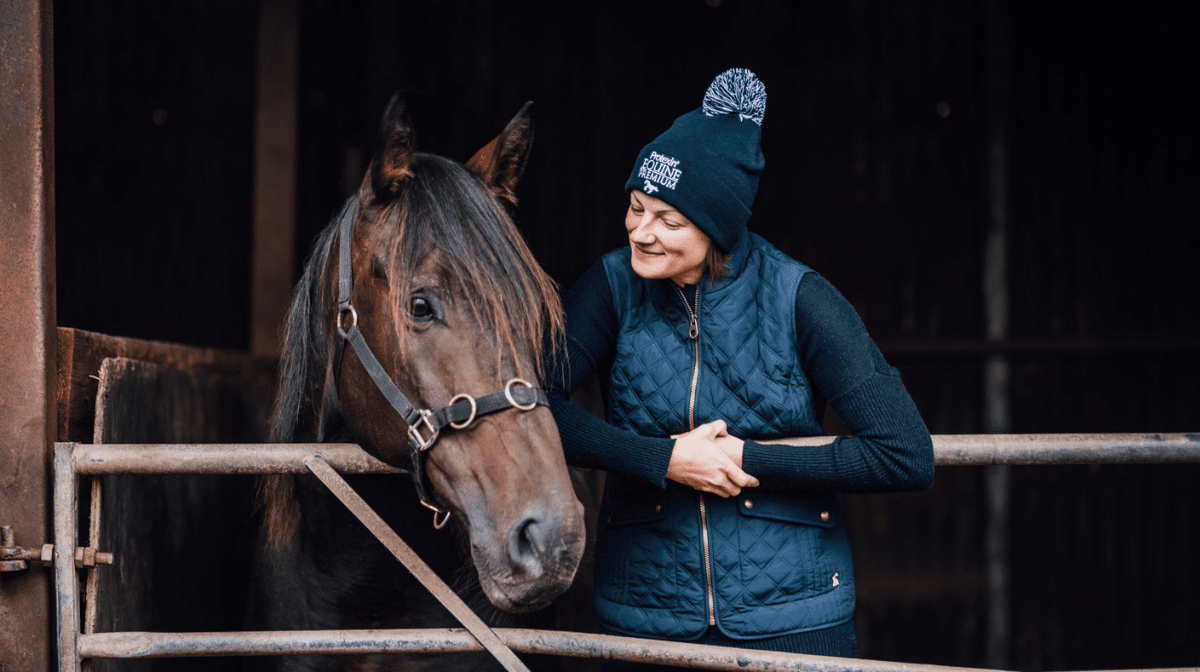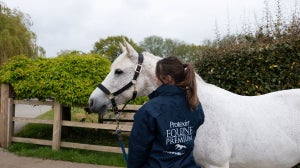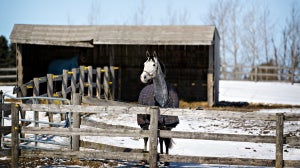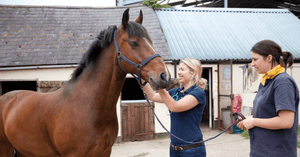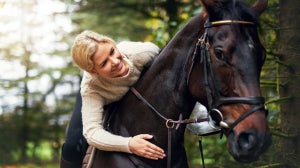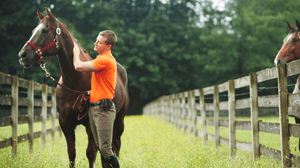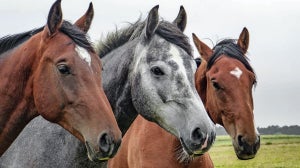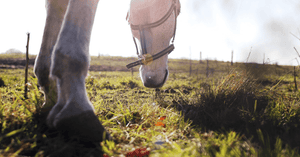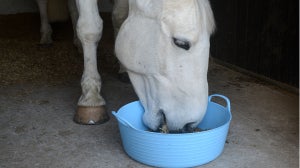
Like humans, horses require special care during their later years, including some special attention to ensure they can remain healthy and comfortable when it's cold outside.
If you have older horses under your care, here are some helpful tips for horse care in winter.
Use Insulated Shelter and Warm Bedding
To understand how to care for a horse in the winter, you must first know the critical temperature of your horse. According to Kentucky Equine Research, the range of lower critical temperature in adult horses ranges between 5°C during mild climates to -15°C in extremely cold times.
Older horses, however, may have a higher critical temperature of around 4°C, similar to horses with thinner bodies or those that don't develop winter coats. They're more susceptible to the wet and cold weather, and an insulated shelter helps keep your horses and their bedding dry.
Provide a Good Quality Rug or a Blanket
When thinking about how to keep a horse warm in winter, you might immediately consider giving them a warm blanket. If your older horse is in good weight, has a full coat, and doesn't suffer from health issues, they likely won't need a blanket. However, blankets and quality rugs might be necessary if you see them shivering or struggling to put on weight.
You must give your older horses blankets in several situations, such as when temperatures drop below their critical point. When winter and snow come, or when it's windy outside, your horse can get extra warmth and protection through the blanket. If it's your horse's first winter season, they might also need more warmth to adjust to the sudden cold.
However, you shouldn't give your horse a blanket if it doesn't need one, as it might be sweating and having difficulty staying dry. Regularly check the blanket you give your horse for any signs of skin disease, rubs or weight loss.
Wisely pick the right blanket for your horses according to weight and coat thickness. If your horse is thinner, you can opt for lighter blankets that aren't too warm or use a thicker one.
Increase Calorie Intake
When your horse has a good weight, the extra layer of fat helps them stay warm during colder months. Feeding can also help give more warmth to your horse, as their digestive process generates heat inside the body. Unused calories are stored as fat, and older horses are usually less active and have thinner muscles than younger ones, so they should be able to develop more fat layers through increased calorie intake.
Hay is one of the best feeds to choose from that can help generate more heat. Horses consume about 2% of their body weight in feed every day. You can increase the amount during winter so your senior horses can stay warm throughout the night.
Choose alternatives like soaked hay cubes if your senior horses can't chew hay well or have dental issues. You can also add veteran horse feed supplements to ensure you fulfil their nutritional needs.
You might also want to give warmed bran mashes during winter so they're more comfortable to consume. Your older equines would appreciate it more. If you're concerned about your equine's digestive system, some senior-specific feeds are more manageable for older horses to digest.
Do Regular Dental Care
Even though your equines have excellent dental health, it's still important to regularly check their dental care, especially during colder months. Older equines are prone to dental issues that make it hard to chew properly. This way, you'll be well informed about changing your older equine's feed if they have trouble chewing.
You can opt for softer feed that’s equally nutritious and easier to chew, such as soaked beet pulp and soaked hay cubes. If you miss noticing a dental problem, the unchewed food may also lead to digestive issues. Consult with your vets to be more sure of the right feed to give to your older horses.
Include an Exercise Program
Including exercise into your equines' activity schedule, as light exercise, helps senior horses maintain muscle mass and increase joint mobility. Prioritise your older equine's safety and comfort when doing so through low-impact exercises like walking. You may also do some stretching indoors or targeted groundwork if it's too cold outside.
When scheduling an exercise program, consider the ground surface condition to ensure your equines don't slip during movements. You should also include enough time for warm-ups and a cooldown to reduce muscle stiffness after the exercise.
Regularly Do Health Check-Ups
Each horse has different needs, so you might want to consult with your vet before making any changes for your older equines. Pay special attention to signs of discomfort or illness, as the thick winter coats might make them harder to spot. See if particular changes in your equines' behaviour, like decreased appetite, may lead to a health issue.
To know for sure, it's better to schedule a regular check-up with your vet. They can help you identify issues earlier, especially if you’re concerned about your older equine's condition. The cold air may affect some senior horses' respiratory systems. Your vet can also provide more information about your equines' vaccination and worming status to ensure they won't catch any disease during winter.
Perform Thorough Hoof Care
Blue Cross suggests that all horse owners should regularly do hoof care, even when the horses are no longer ridden. This is more important during winter, as walking on wetter surfaces can cause issues like soft hooves and thrush, possibly leading to cracking or injury.
Inspect and thoroughly clean your senior horses' hooves, and exercise caution when bringing them outside. Avoid icy surfaces, especially if your equines have joint issues, and opt for hoof boots when necessary.
Older equines need extra care during the colder season. Doing a preseason check can help you notice what you must pay extra attention to. Don't hesitate to call your vet if you notice any suspicious changes in your senior horses' behaviours so you can spot troubles coming earlier. By knowing how to keep your horse warm in winter, you can assist your equines in spending their winter times comfortably.
FAQs
Should Older Horses be Blanketed in Winter?
If your older horse is thinner, a blanket may be necessary. However, if your older horse is of reasonable weight, blankets might make them produce too much sweat and make it hard for them to stay dry. Observe your equine's behaviour and the temperature to see if your older horse needs a blanket.
What is the Best Winter Feed for Older Horses?
Hay is an excellent choice as it can help generate more heat. However, if your equine has dental issues, you can opt for soaked hay cubes, warmed bran mashes or soaked beet pulps. You may also use a senior-specific feed.
How to Keep Horses Warm in the Winter?
You can start by using insulated shelter and warm bedding to provide a comfortable area for your horses that keeps them warm and dry. You may also give them a blanket if your horses are shivering from the cold.
What are the Symptoms of Old Age in Horses?
Each horse might show different symptoms, but some of the most common physical signs include the loss of muscle mass, a dip in the horse's back, loss of strength around the fetlock joint, hollow eyes and a slower, stiffer movement.

